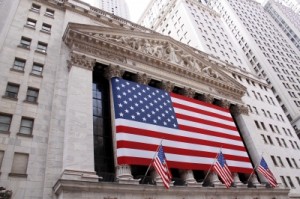Barclays Capital Inc was for many years a stock brokerage firm. After the bankruptcy of Lehman Brothers in 2008, Barclays decided to enter the investment advisory business by purchasing Lehman’s advisory unit. Virtually overnight, Barclays found itself running an entirely new line of business. Unfortunately, the company wasn’t ready and immediately suffered many large compliance failures.
The SEC charged that Barclays did not make required written disclosures or obtain client consent in over 1500 transactions. Regulators also charged that in thousands of instances, the company charged fees and commissions “inconsistent with its disclosures.” Those charges were resolved this week.
The violations resulted in client losses of $472,000 and excess revenues in excess of $3 million. To its credit, Barclays has reimbursed all affected customers in full including interest. Even though all customers were made whole, the SEC imposed fines of $15 million. In announcing the fines, the SEC said in a prepared statement, “When a firm acquires an advisory business, it must devote the attention and resources necessary to build a robust compliance system. Barclays failed to establish this critical compliance foundation when it acquired Lehman’s advisory business, and as a result subjected its clients to a host of improper practices and inadequate disclosures.”
Barclays has not admitted any wrongdoing or guilt. Currently, the firm has 245 investment advisors and $13 billion of assets under management.
Most clients of investment advisers and stockbrokers assume they are being charged proper commissions. In most cases they are. This case points out, however, that firms often make mistakes. Big mistakes.
Stockbrokers and investment advisers are responsible for the misconduct of their employees as well their own compliance failures. Here the improper commissions resulted in over $3 million of overcharges. That sounds like negligence. We are far more concerned by the SEC’s conclusion that in over 1500 trades, either proper disclosures were not made or no consent obtained. There is no reason for that type of serious failure. We believe that is what resulted in the $15 million fine.
If you believe that a stockbroker or adviser made unauthorized trades in your account or you made an investment without receiving proper disclosures from your adviser, you may be able to collect damages or rescind the trade. Stockbroker fraud cases are often handled by binding arbitration and results often take as little as one year. Most claims can be handled on a contingent fee basis meaning no legal fees unless we recover money for you.
Need more information? Contact one the stockbroker fraud lawyers at Mahany & Ertl. For more information, contact attorney Brian Mahany at or by telephone at (direct). [Generally we do not accept cases with a loss of less than $250,000. Exceptions may apply.]
Photo courtesy of photoholic at freedigitalphotos.net


